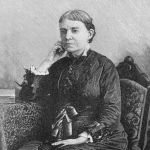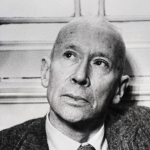Graceland cemetery on the German North Side.
Forty feet of Corinthian candle
celebrate Pullman embedded
lonely raisin in a cake of concrete.
The Potter Palmers float
in an island parthenon.
Barons of hogfat, railroads and wheat
are postmarked with angels and lambs.
But the Getty tomb: white, snow patterned
in a triangle of trees swims dappled with leaf shadow,
sketched light arch within arch
delicate as fingernail moons.
The green doors should not be locked.
Doors of fern and flower should not be shut.
Louis Sullivan, I sit on your grave.
It is not now good weather for prophets.
sun eddies on the steelsmoke air like sinking honey.
On the inner green door of the Getty tomb
(a thighbone's throw from your stone)
a marvel of growing, blooming, thrusting into seed:
how all living wreathe and insinuate
in the circlet of repetition that never repeats:
ever new birth never rebirth.
Each tide pool microcosm spiraling from your hand.
Sullivan, you had another five years
when your society would give you work.
Thirty years with want crackling in your hands.
Thirty after years with cities
flowering and turning grey in your beard.
All poets are unemployed nowadays.
My country marches in its sleep.
The past structures a heavy mausoleum
hiding its iron frame in masonry.
Men burn like grass
while armies grow.
Thirty years in the vast rumbling gut
of this society you stormed
to be used, screamed
no louder than any other breaking voice.
The waste of a good man
bleeds the future that's come
in Chicago, in flat America,
where the poor still bleed from the teeth,
housed in sewers and filing cabinets,
where prophets may spit into the wind
till anger sleets their eyes shut,
where this house that dances the seasons
and the braid of all living
and the joy of a man making his new good thing
is strange, irrelevant as a meteor,
in Chicago, in flat America
in this year of our burning.





















Comment form: